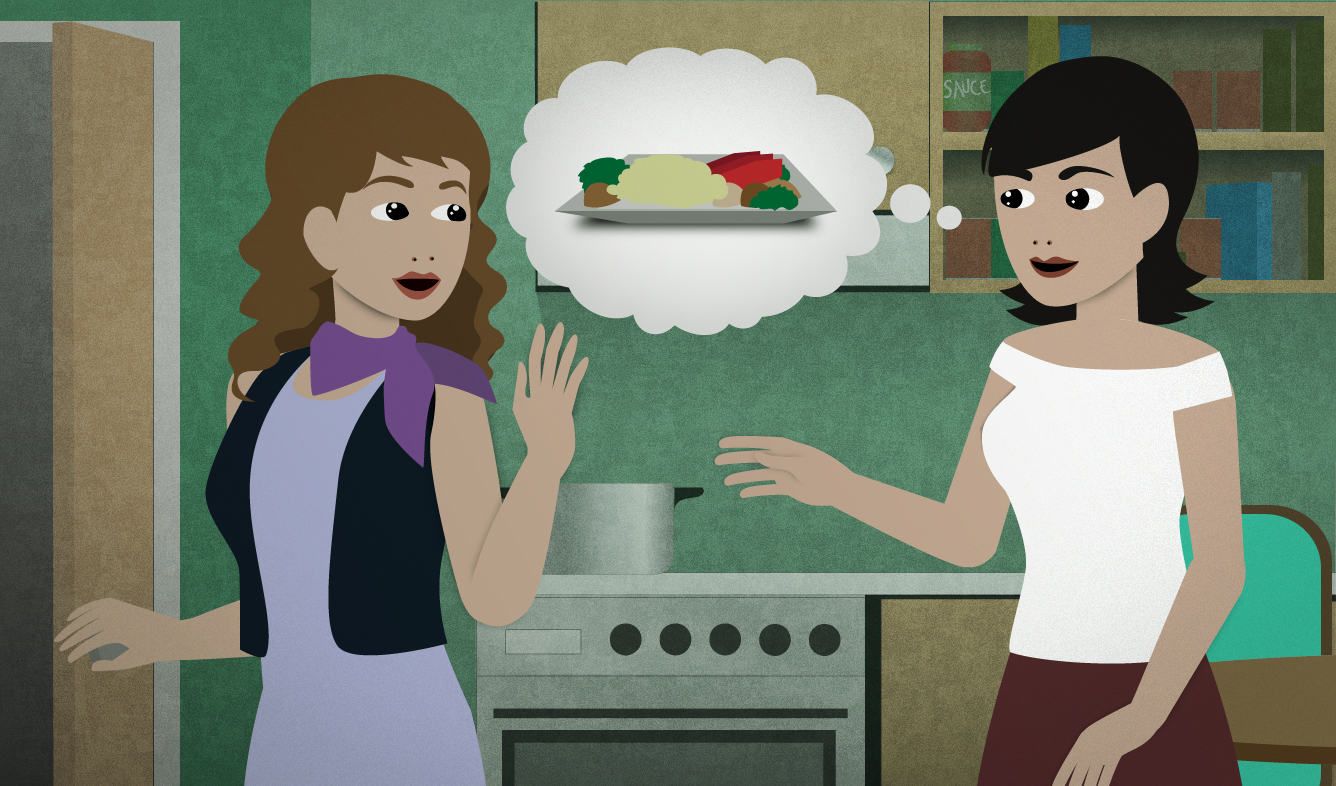“No thanks, I've got to get going.”
You're visiting a friend's house. She invites you to stay and eat dinner there, but you know that it would be more work for her if you stayed. You want to politely say "no".
No thanks, I've got to get going.
Want Video and Sound? Follow us on YouTube

get going
Say "I should get going" when you're ready to leave somewhere:
Well, I guess I should get going.
This sounds softer and friendlier than "I should go".
"Get ___ing" means to start doing something. It's used in casual speech. But this structure that can't be used for just any verb. Only a few good examples come to mind:
- get going
- get moving (often used when leaving your house)
- get the ball rolling (to start a process or a project)
I've got to (do something)
When you really want to do something and feel like you can't wait any longer, you say "I've got to ___":
I've got to get an iPad.
This is pronounced with stress on the word "got".
In casual English, "got to" can be written as "gotta" and pronounced as "godda". In that case, the stress falls on the first syllable, "godda".
No thanks.
This is an expression to use when someone offers you something, but you don't want it. Depending on how you say it, "No thanks" can sound angry, cheerful, or anything in between.
If you'd like to be more formal, you can say "No thank you."
